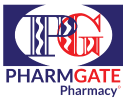Here is a listing of common ailments with tools and links you need as general treatment guideline to make you health conscious. More detailed information about any of the ailments listed below is available upon request, ask our pharmacist.
Asthma
Asthma is a long-term disease, at times the air passages of your lungs become inflamed. When this happens your airways get read and swollen. They become narrow, making it harder for you to breathe. You may also wheeze or cough. Colds or allergies can also trigger asthma attacks.
How it is treated – Most people with asthma take 2 kinds of medicines. One is called controller medicine. These medicines help control the inflammation so you feel and breathe better. Another kind of medicine is quick-relief or rescuer medicine (also called bronchodilators). These medicines dilate the airway and make it easier for you to breathe.
Prevention – Try to avoid things that irritate the lungs such as air pollution, tobacco smoke or perfumes. Avoiding pet hair and controlling seasonal allergies may help. Avoid infections and get a flu shot every year.
Common Cold
Most colds are caused by invisible droplets called rhinoviruses that are in the air you breathe or on things you touch. More than 100 different rhinoviruses can infiltrate the protective lining of the nose and throat, triggering an immune system reaction that can start the cold symptom response.
Colds usually begin slowly, two to three days after infection with the virus. The first symptoms are typically a scratchy, sore throat, followed by sneezing and a runny nose. Colds typically last from 3 to 10 days. A mild cough can develop several days later.
How it is treated – No medicine can cure a cold. Antibiotics don’t work against viruses. Antibiotics should only be taken if needed for bacterial infections. You can help yourself feel better by letting your body rest and by treating your symptoms while your body fights off the virus.
Prevention – Many colds can be prevented by
- Washing your hands often. You can pick up cold germs easily, even when shaking someone’s hand or touching doorknobs or handrails.
- Avoiding people with colds when possible
- Cleaning surfaces you touch with a germ-killing disinfectant.
- Not touching your nose, eyes or mouth. Germs can enter your body easily by these paths. Do not eat or drink after other people.
- Keep your immune system healthy by getting plenty of sleep, eating healthy foods, drinking 8 glasses of water daily and by not smoking.
Cuts or Abrasions
An abrasion, or scrape, is a shallow wound characterized by a tearing or wearing away of the top layer of skin. A cut is a wound in which the skin is sliced by a sharp edge. Abrasions and cuts often occur because of an accident in which the skin is scraped against a rough surface (abrasion), or the skin is sliced by a sharp edge (cut).
How I should clean this – The best way to clean a cut or abrasion (scrape) is with cool water. Use soap and a soft wash cloth to clean the skin around the wound. Do not use a stronger cleaning solution such as hydrogen peroxide as they may irritate the wound.
Heart and Weight Management
Heart disease is one of the leading causes of high mortality rate in developing countries. Beside this obesity is another fetal disorder that induces a number of death occurring diseases. PharmGate pharmacy offers a range of diagnostic tests, which focus on different conditions, all of which can lead to death. We have different weight loss program depending on your current physical condition, please visit us to check that the program is suitable for you.
The Healthy Heart Check includes:
- BMI reading (Body Mass Index)
- Blood pressure check
- Blood glucose check
- Cholesterol test
- Lifestyle advice
Other Pharmacy Services
Prescription Collection & Delivery Service
- Prescription Dispensing
- Over The Counter Medicines
- Specialized services to care homes
- Nursing Home Services
- Medicine and Healthcare Advice
- Smoking Cessation guidance
- Travel Advice
- Vitamin and Mineral Supplements
- First Aid Kits supplies
